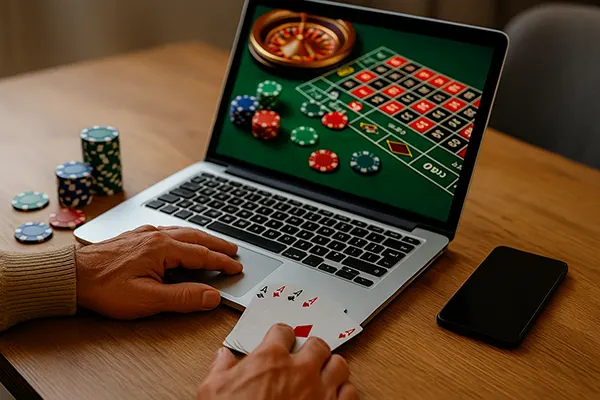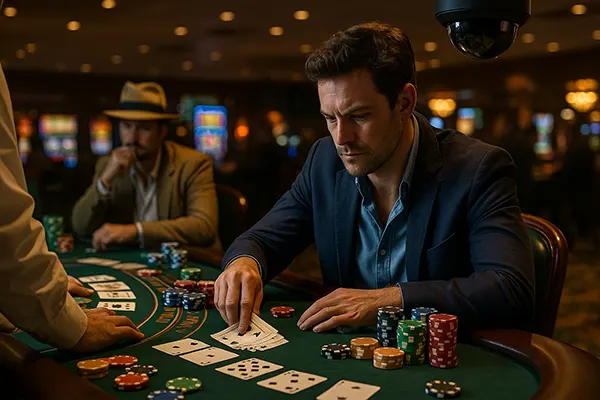
Illusion of Mastery in Gambling: Why Players Feel in Control
The concept of “illusion of mastery” is deeply rooted in human psychology and prominently manifests itself in gambling activities. Many players believe that their actions can influence outcomes in games of pure chance, leading to a sense of control that is largely fictional. Understanding this phenomenon is critical to promoting responsible gaming and avoiding unhealthy gambling behaviours.
Psychological Roots of the Illusion of Mastery
One of the fundamental psychological factors behind the illusion of mastery is the human tendency to seek patterns, even where none exist. When players experience a win, they often attribute it to their skills or strategies, reinforcing the idea that they can control the result. This cognitive bias can make random outcomes seem predictable and manipulable.
Reinforcement plays a significant role as well. Occasional wins, even if entirely random, serve as powerful reinforcement for the belief that a player’s strategy or decision-making directly influenced the result. The more frequently small wins occur, the stronger this illusion becomes, creating a dangerous cycle.
Moreover, emotional investment heightens the feeling of control. When players spend significant time and money on a game, they often feel entitled to a win, believing that their perseverance or ‘experience’ will eventually pay off. This belief often leads to chasing losses and further gambling problems.
Examples in Different Gambling Activities
Slot machines are classic examples where the illusion of mastery thrives. Despite being entirely random, players might believe that stopping the reels at a certain moment or playing at a specific time of day will increase their chances of winning. Visual and auditory cues reinforce this sense of influence.
In card games like blackjack, while strategic play can improve odds slightly, outcomes are still heavily influenced by luck. Many players, however, overestimate their control, thinking that mastering ‘the perfect strategy’ guarantees long-term wins, overlooking the inherent house edge.
Sports betting also fuels the illusion of control. Even though bettors might extensively research teams, players, and statistics, unpredictable variables often determine outcomes. Yet, the depth of their preparation convinces them that their expertise makes wins a matter of skill rather than luck.
Consequences of Believing in Control
The illusion of mastery can lead to significant financial and emotional consequences. Players convinced of their control often wager larger amounts, believing that losses are temporary setbacks that their ‘skills’ will soon overcome. This behaviour increases the risk of problem gambling and financial ruin.
Emotional distress is another major consequence. When outcomes do not align with perceived efforts or skills, feelings of frustration, anger, and despair may arise. These emotions can intensify the cycle of chasing losses, pushing players into deeper psychological and financial trouble.
Furthermore, this illusion can impact interpersonal relationships. Financial strain, irritability, and obsession with gambling often cause conflicts with family and friends. Over time, trust may erode, leading to social isolation and further dependence on gambling as an emotional outlet.
Recognising the Illusion and Breaking the Cycle
Education is a key tool for combating the illusion of mastery. Players who understand the role of randomness in gambling are less likely to develop false beliefs about control. Public awareness campaigns and responsible gambling messages can significantly help in this regard.
Implementing self-exclusion tools and setting strict limits on gambling activities can also assist players in regaining control over their behaviour. Casinos and online platforms that promote such tools play an important role in supporting safer gambling practices.
Cognitive behavioural therapy (CBT) has shown positive results in addressing gambling disorders. By helping individuals recognise and reframe erroneous beliefs about control and mastery, CBT can be an effective pathway towards recovery and healthier gaming habits.

The Role of Gambling Industry and Regulation
The gambling industry has a responsibility to mitigate the risks associated with the illusion of mastery. Transparent communication about odds, responsible marketing practices, and the promotion of safer gambling initiatives are critical steps towards protecting players.
Regulators worldwide are increasingly mandating such practices. For instance, many jurisdictions now require operators to display clear information about odds and expected returns. These measures aim to inform players and weaken misconceptions about their ability to influence outcomes.
Industry-led initiatives such as mandatory breaks, reality checks, and pop-up reminders of gambling limits also contribute positively. When properly implemented, these measures help players maintain perspective and recognise that gambling is a game of chance, not a domain where mastery can guarantee success.
Future Prospects and Ethical Considerations
Technological advancements present both opportunities and challenges. On one hand, AI and data analytics can personalise responsible gambling tools, offering tailored advice and interventions. On the other hand, these technologies could be misused to exploit cognitive biases if not properly regulated.
Ethical considerations must guide the development and deployment of new gambling technologies. Balancing commercial interests with player well-being is crucial to creating a sustainable and ethical gambling environment. Transparency, player education, and fairness must remain at the core.
Looking ahead, collaboration between regulators, operators, and mental health organisations will be vital. Through joint efforts, the industry can evolve into a safer space that respects human psychology and works actively against the illusion of mastery that has caused so much harm.





